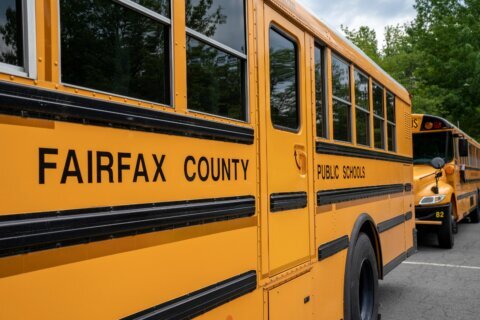Students with disabilities in Virginia’s largest school system are disproportionately suspended compared to their peers without disabilities, according to the findings of a two-year review of Fairfax County Public Schools’ special education program.
The Fairfax County School Board will be briefed Tuesday on findings of a review of special education services that it requested in December 2019.
American Institutes for Research completed the nearly $463,000 review. It didn’t evaluate special education programs during the pandemic, because researchers said that doing so may have led to recommendations that aren’t useful as schools transition back to “normal operations.”
Special education students in Fairfax County between 2016 and 2019 were at higher risk of being expelled or suspended for more than 10 days in a school year when compared with the general student population, the review found.
The review showed that trend is also true in nearby Prince William and Loudoun counties.
The findings also highlight communication challenges between teachers and school administrators and variation in how parents feel about the amount and quality of communication from school staff.
The review will be used to help the county develop a special education enhancement program that’s projected to be finalized by February, according to school board documents.
Fairfax County, according to the final report, retained nearly 90% of special education teachers, instructional assistants, and other special education workers between 2015 and 2019.
The county’s student-to-teacher ratio for special education was also lower than Virginia’s state average over the last few years. In 2016-17 and 2018-19, the state average ratio of students with disabilities to teachers was 15-to-1. In Fairfax County, it was found to be 10-to-1.
But the review’s findings detail other communication and operational concerns, including:
- New teachers aren’t adequately prepared to support students with disabilities.
- The county doesn’t meet Virginia’s goal for the percentage of time students with Individualized Education Plans are in regular classrooms.
- Paperwork and case management responsibilities leave many staff members feeling overwhelmed.
- Communication from the county about special education “can be inconsistent and difficult to access.”
- Translation services aren’t “widely or easily accessible” for the people who need them.
The research firm collected data from eight data sources between December 2020 and May 2022.
Sources included data on programming and student performance, a review of randomly selected Individualized Education Plans, surveys issued to school staff and parents of students with IEPs or Section 504 plans and observations in 150 classrooms in 50 schools, among others.
The entire review is available online. Tuesday’s school board work session is scheduled to begin at 10 a.m.








